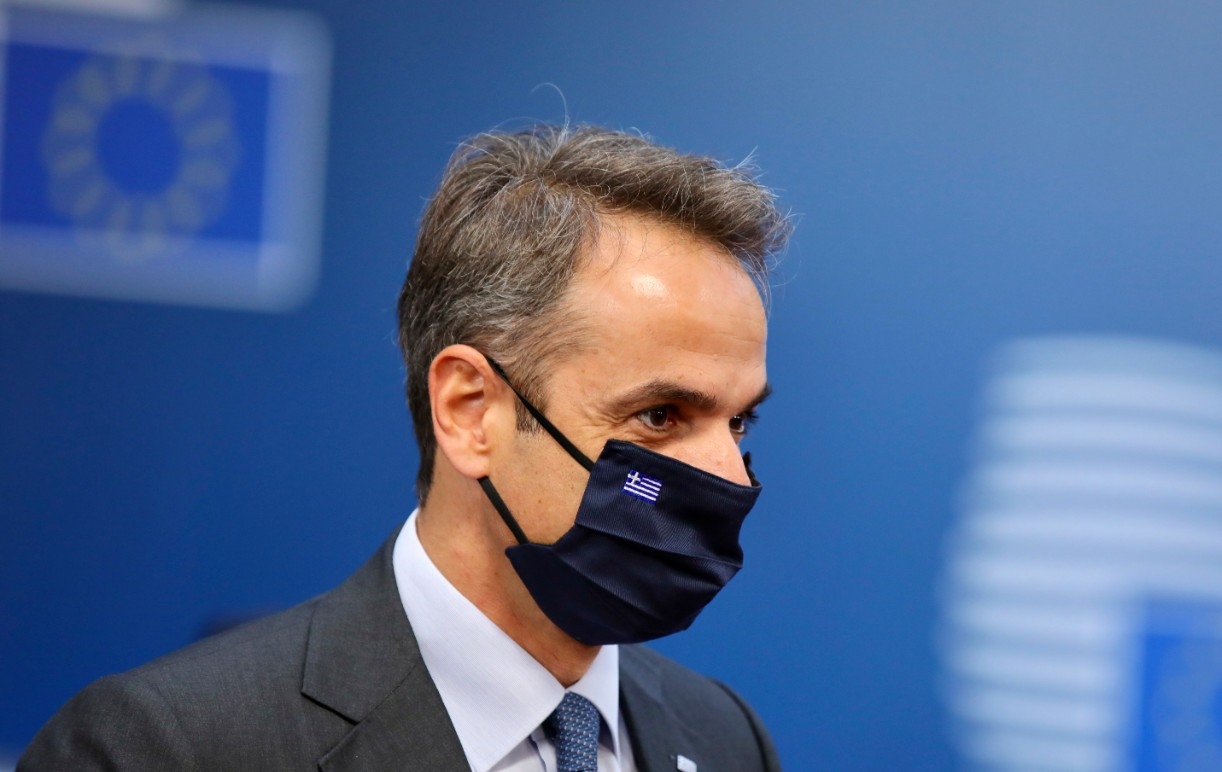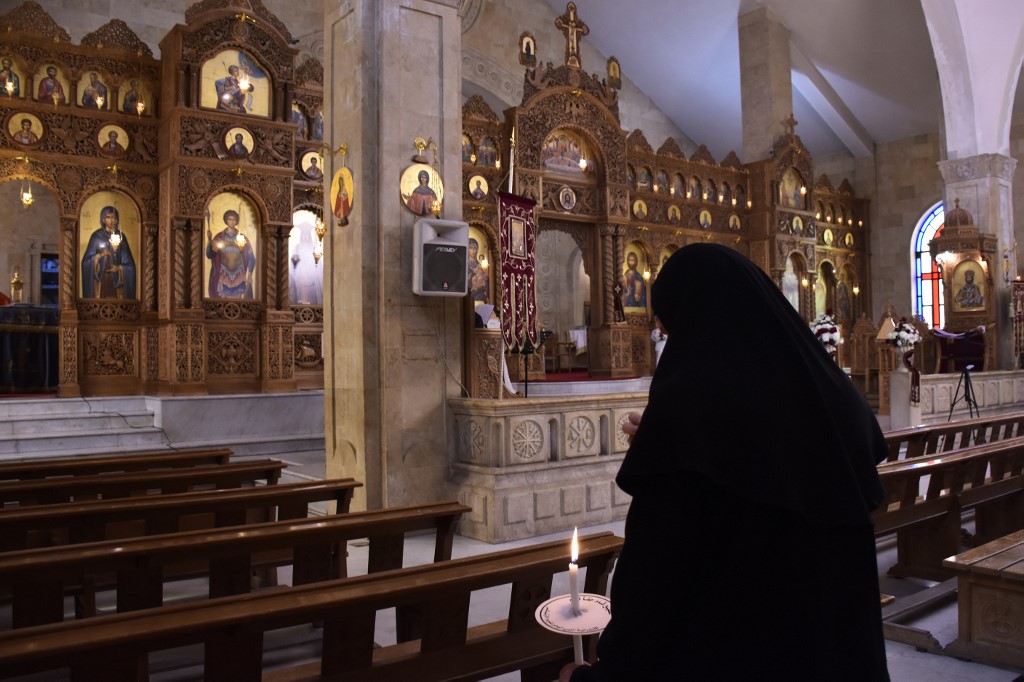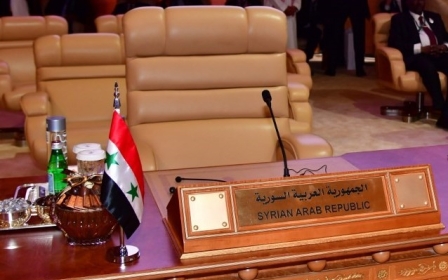Why is Greece mending relations with Assad?

Not long after the Syrian uprising began in 2011, almost all European Union states severed diplomatic ties with Syria. Almost a decade later, there remains widespread agreement within the EU that members should not reopen formal relations with Damascus.
Yet, this consensus is weakening. While France and Germany still firmly oppose recognising Bashar al-Assad as Syria’s legitimate president and support continuing sanctions on Damascus, some populist governments in southern and central Europe are against the EU’s tough anti-Assad line.
The Czech Republic never severed ties with Syria. Hungary has been moving towards renormalisation with the Assad regime, and Austria and Poland are reportedly growing more open to doing the same. Most recently, Greece and Cyprus have reestablished diplomatic relations with the Syrian government.
History of brotherly ties
The appointment in May of Tasia Athanasiou as Greece’s special envoy for Syrian affairs marks “only the first step” towards reopening the Greek embassy in Damascus, according to a report in the Greek City Times. Although the move will likely upset various European governments, EU institutions, portions of Greek society and the Syrian opposition, other segments of Greece’s populace believe the move was long overdue.
New MEE newsletter: Jerusalem Dispatch
Sign up to get the latest insights and analysis on Israel-Palestine, alongside Turkey Unpacked and other MEE newsletters
The Greek and Syrian leaderships see restored diplomatic relations as a means of weakening Ankara's geopolitical position in the Eastern Mediterranean
Golden Dawn, a xenophobic movement in Greece, has strongly advocated a restoration of ties with Damascus. Like Hungary’s right-wing populist government, Golden Dawn’s support for reopening relations with Assad’s regime is largely connected to its interest in seeing Syrian refugees return to their home country.
Yet, Greece’s government has numerous motivations for wanting to renormalise relations with Assad. There is a history of brotherly ties between Greece and Arab actors in the Eastern Mediterranean, which is critical to understanding how Athens views the situation in Syria.
For decades, Greece and its ally Cyprus “have championed Syrian and Palestinian rights and were among the most vocal critics of Israel’s occupation of Arab lands”, explained Camille Otrakji, a Damascus-born, Montreal-based Syria specialist. Athens’ decision to close its embassy in Damascus in 2012 was due to “an EU decision that Greece had to comply with … at a time when Europe was practically united behind ‘the Arab Spring’”.
Targeting Christians
Although diplomatic relations officially ended in 2012, that was not the same for economic links. Greece played a critical role in helping Syria to avoid further isolation in the Eastern Mediterranean. Their phosphates trade reportedly served as an important economic lifeline to Assad’s government throughout the conflict.
While not the main driver of renormalisation efforts, religion is also a factor. Based in Damascus since the 14th century, the Greek Orthodox Patriarch of Antioch has a rich history in Syria. In recent years, Christians in Syria have been targeted by the Islamic State and al-Qaeda-linked groups seeking to eradicate the country’s ancient religious minorities.
Like pro-Assad voices in the Hungarian government, many Greeks who support the Syrian president view him as a protector of Christians in Syria, including roughly 503,000 members of the Greek Orthodox Church.
Georgios Epitideios, a Greek member of the European Parliament representing Golden Dawn, in 2015 addressed the plight of Christians in Syria who were “targeted by the opposition for collaborating with the legitimate Syrian government” and have “suffered abominably at the hands of paramilitary organisations/armed gangs, which are sadly supported by the West”.
He continued: “Over recent years, entire villages have been deserted by residents forced to flee their family homes, religious leaders have been abducted, churches have been desecrated and destroyed and archaeological sites dating back to the Hellenistic period have been damaged. Islamic organisations have even poisoned the traditional beverages of the Greek Orthodox Christian community, in a bid to engineer their extinction.
“Numerous Greek Orthodox Christians have fled the country, and those who remain live in constant fear. They are also living in less-than-basic conditions, without food and water, and are dependent entirely on any humanitarian aid that may come their way. They cannot even move around freely, as Islamic snipers murder them. In short, Greek Orthodox Christians in Syria have become the victims of a coordinated genocide.”
Dispute with Ankara
Arguably, however, the most important factor driving Greece and Syria’s reestablishment of formal diplomatic relations is their shared perception of the threat posed by Turkey. Tensions between Greece and Turkey have significantly heated up in recent months, mainly due to a dispute over sovereignty in the gas-rich Eastern Mediterranean, in addition to the Hagia Sophia controversy.
Such problems show no signs of resolving easily or amicably in the near term. The Greek and Syrian leaderships see restored diplomatic relations as a means of weakening Ankara’s geopolitical position in the Eastern Mediterranean and its “neo-Ottoman” foreign policy throughout the region.
Moreover, the Greek-Syrian rapprochement takes place within the context of Athens working to strengthen its relations with a host of European and Arab actors that perceive Turkey to be a dangerous power that must be countered. Besides Syria, these countries include Cyprus, Egypt, France, Libya’s eastern side, Israel, Saudi Arabia and the UAE.
Greek scholar Mochament Elsaer said that “due to long-established economic traditions with Syrian businesses, Greece could promote dialogue and become [Syria’s] diplomatic and economic bridge to Europe”. But Greece’s relationship with Washington, along with US power in the global financial system, will limit the extent to which Athens and Damascus can build a strong economic partnership.
Implemented by Washington in June, the so-called Caesar Act imposes sweeping and harsh economic sanctions on Syria, making it risky for governments, companies or individuals worldwide to do business in sectors of the Syrian economy dominated by Assad’s government (such as banking, construction and energy).
“In foreign policy, there is always the rule that benefits should outweigh potential costs and ramifications,” Elsaer noted. “The United States is a pivotal ally for Greece, and we should expect adherence to relevant laws and sanctions by all European countries.”
Shifting security dynamics
Ultimately, Greece finds itself in a geopolitically volatile part of the world. Changing security dynamics in the Eastern Mediterranean and shifts in the region’s balance of power pose dilemmas for Athens.
As Greek officials contend with these new realities, they have apparently determined that renormalising relations with Assad’s government could help to counter threats to Greece’s national interests.
Greece's government is approaching Syria in ways that further undermine the European consensus of a strict anti-Assad line
Looking ahead, a key question is whether Greece’s government will pay a major price for its rapprochement with Damascus in the form of potential backlash from Washington and various EU members and institutions.
Regardless, Greece’s government is approaching Syria in ways that further undermine the European consensus of a strict anti-Assad line. This is a boost to the Syrian regime as it attempts to reintegrate itself into the international community’s diplomatic fold.
The views expressed in this article belong to the author and do not necessarily reflect the editorial policy of Middle East Eye.
Middle East Eye delivers independent and unrivalled coverage and analysis of the Middle East, North Africa and beyond. To learn more about republishing this content and the associated fees, please fill out this form. More about MEE can be found here.







